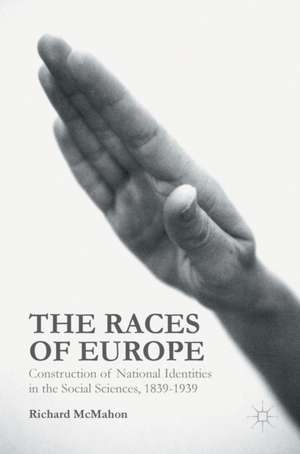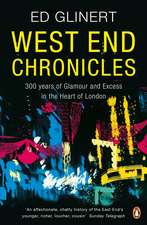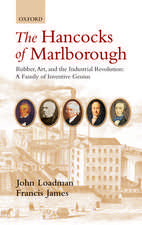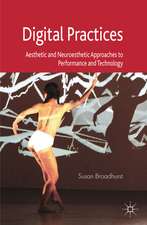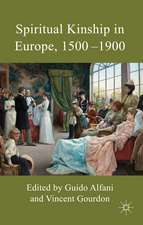The Races of Europe: Construction of National Identities in the Social Sciences, 1839-1939
Autor Richard McMahonen Limba Engleză Hardback – 22 noi 2016
Preț: 736.16 lei
Preț vechi: 897.75 lei
-18% Nou
Puncte Express: 1104
Preț estimativ în valută:
140.88€ • 145.54$ • 117.25£
140.88€ • 145.54$ • 117.25£
Carte tipărită la comandă
Livrare economică 26 martie-09 aprilie
Preluare comenzi: 021 569.72.76
Specificații
ISBN-13: 9780230363199
ISBN-10: 0230363199
Pagini: 387
Ilustrații: XVI, 466 p. 36 illus.
Dimensiuni: 148 x 210 x 32 mm
Greutate: 0.69 kg
Ediția:1st ed. 2016
Editura: Palgrave Macmillan UK
Colecția Palgrave Macmillan
Locul publicării:London, United Kingdom
ISBN-10: 0230363199
Pagini: 387
Ilustrații: XVI, 466 p. 36 illus.
Dimensiuni: 148 x 210 x 32 mm
Greutate: 0.69 kg
Ediția:1st ed. 2016
Editura: Palgrave Macmillan UK
Colecția Palgrave Macmillan
Locul publicării:London, United Kingdom
Cuprins
Illustrations. - Acknowledgements. - Introduction: Rediscovering a lost science. - PART I: NETWORKS, METHODS AND NARRATIVES. - Part 1: Networks, methods and narratives. - 1. Race classifiers and anthropologists. - 2. How Classification Worked. - 3. European Race Classifications: Anthropology, Ethnicity and Politics. - PART II: PERIPHERAL CASE STUDIES. - 4. The Irish dilemma: Nineteenth-century science and Celtic identity. - 5. Poland: Scientific independence and Nordicism. - 6. Between International Science and Nationalism: Interwar Romanian race science. - Conclusion. - Epilogue. - Genetics: race classification redux?. - Bibliography. - Atlas
Notă biografică
Dr Richard McMahon is Senior Research Fellow at the University of Portsmouth, UK, where he studies the transnational networks and political narratives of EU Studies. He has published several edited volumes on both race science and European integration and worked at University College Cork, Ireland, and the University of Bristol, UK.
Textul de pe ultima copertă
This book explores a vital but neglected chapter in the histories of nationalism, racism and science. It is the first comprehensive study of the transnational scientific community that in the nineteenth and early twentieth centuries attempted to classify Europe's biological races. Anthropological race classifiers produced parallel geographies, histories and hierarchies of European peoples that were crucial to the creation of national identities and to the overtly political race discourses of eugenics and popular racist ideologues. They lent nationalism the invaluable prestige of natural science, and traced the histories, conflicts and relationships of ‘national races’ back into prehistory. Racial national character stereotypes meanwhile supported competing political ideologies. The book examines the interplay between class, gender and national identity narratives and the tensions and interactions between the scientific and political agendas of classifiers. Within the elaborate transnational networks of scientific communities, for example, they had to reconcile competing national narratives.
Caracteristici
Combines methods from history (particularly intellectual history and the history of science) with quantitative social science approaches Utilizes a large amount of primary and secondary research Explores an important topic – racial classifications within nineteenth- and early-twentieth century Europe – which has been relatively unexplored in historical writing
